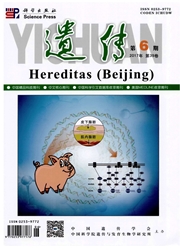

 中文摘要:
中文摘要:
国内多个研究报道了脂蛋白酯酶基因(LPL)PvuⅡ多态(rs285)与中国人高脂血症和冠心病的关系,但单个研究的样本量都较小(119~647),结果不尽一致。为了全面客观评价LPL基因PvuⅡ多态在中国人高脂血症和冠心病发病中的作用,文章对所有中国人群的研究进行了Meta分析。共11篇文献纳入研究,其中关于高脂血症的研究6项,包括患者943例,正常对照1093例,关于冠心病的研究5项,包括患者821例,正常对照727例。入选研究无明显的发表偏倚,但经同质性检验存在明显的异质性。Meta分析结果显示LPLPvuⅡ多态的P+等位基因增加高脂血症的患病风险(OR=1.36,95%CI1.07~1.73,P=0.011),但与冠心病相关不显著(P=0.755)。因此,文章结果表明LPL基因PvuⅡ多态与中国人高脂血症易感性相关联,与冠心病关联不显著。
 英文摘要:
英文摘要:
Multiple studies reported the association of LPL PvuⅡpolymorphism(rs285) with hyperlipoidemia and coronary heart disease in the Chinese population;however,the sample sizes of these studies were small(119-647) and the results were not consistent.A Meta-analysis was undertaken to evaluate the role of LPL PvuⅡpolymorphism in hyperlipoidemia and coronary heart disease in Chinese.A total of 11 case-control studies were collected.Among them,6 studies on hyperlipoidemia contained 943 cases and 1,093 controls,and 5 studies on coronary heart disease contained 821 cases and 727 controls.No significant publication bias was found and significant heterogeneity between these studies was observed.The results of Meta-analysis indicated that the allele P+ increased the risk of hyperlipoidemia(OR=1.36,95%CI 1.07-1.73,P=0.011),and no evidence of association(P=0.755) was found for coronary heart disease.Our study suggested that the LPL PvuⅡpolymorphism was significantly associated with hyperlipoidemia but not with coronary heart disease in the Chinese population.
 同期刊论文项目
同期刊论文项目
 同项目期刊论文
同项目期刊论文
 期刊信息
期刊信息
